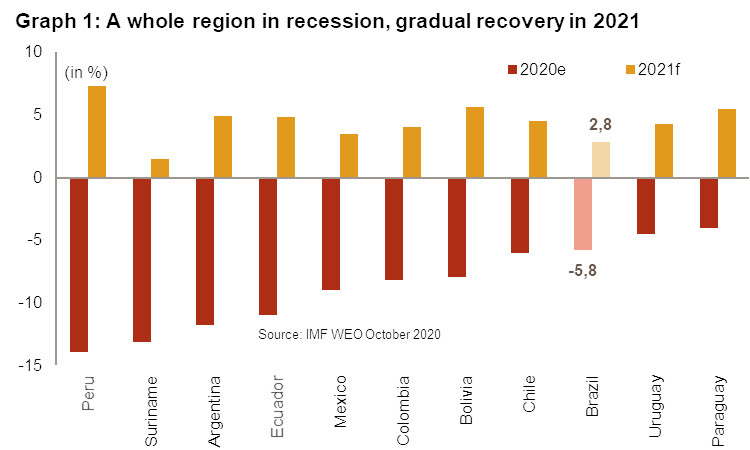seful foreign affairs updates for all
Foreign affairs updates - 04 December 2021
- Austrian political upheaval: Austria’s political scene was roiled when Sebastian Kurz, the country’s scandal-ridden former chancellor, abruptly announced that he would step back from politics. His successor, current chancellor Alexander Schallenberg, swiftly followed suit, announcing his own resignation just hours later. Once a popular figure of the European center-right, Kurz soared to power before a corruption scandal led to his resignation in October. Schallenberg, one of Kurz’s close allies, was widely seen as a placeholder in the position until Kurz was able to return. Kurz’s departure is consequential for both Austria and the future of the European center-right, which has consistently struggled to retain support and build momentum over the past few months. When Kurz first joined the government in 2011, his political future looked bright. Successes came quickly: at just 27 years old, he became Austria’s youngest foreign minister ever. When he was named the Austrian chancellor at 31 years old, he was the world’s youngest head of government. His fall was also fast. In October, Kurz resigned as chancellor after becoming the subject of a sweeping corruption probe, and last month Austrian lawmakers unanimously decided to remove his immunity to clear the way for an investigation. Now, the chances of a full political recovery appear increasingly unlikely. As European politics become increasingly fragmented, Kurz’s departure is a “significant blow” to the center-right.
- America’s new pandemic response: As the first cases of the Omicron coronavirus variant are reported in the United States, U.S. President Joe Biden unveiled his new pandemic response strategy at the National Institutes of Health. “We’re going to fight this variant with science and speed, not chaos and confusion,” he said. Under this strategy, which encourages more vaccinations and testing, all patients will now be reimbursed for rapid at-home coronavirus tests. International travelers will face greater testing requirements, while users of public transportation must abide by expanded mask mandates. The plan “pulls no punches in the fight against COVID-19,” Biden said, while noting that his strategy does not include lockdowns. But finding unity may be difficult, especially as Biden faces considerable backlash for pushing vaccine mandates for big employers. A group of Republican lawmakers threatened a government shutdown over the requirements.
- The return of “Remain in Mexico”: The United States and Mexico have reached an agreement to reinstate a controversial Trump-era policy, Migrant Protection Protocols (MPP), more widely known as “Remain in Mexico.” During the Trump Administration, the program was used to push an estimated 60,000 asylum applicants back to Mexico, where they waited for months and faced attacks, kidnapping, and murder. Although Biden suspended the policy for being “dangerous” and “inhumane” after taking office, the Supreme Court reinstated it in August. Under the revived deal, the United States must now offer migrants COVID-19 vaccinations and greater humanitarian exemptions. Washington insists that its overall opposition to the policy hasn’t changed. “We want to end this program,” White House Press Secretary Jen Psaki told reporters. “But we also believe in following the law.”
- Boosting oil production: OPEC and a group of allied oil producers have collectively agreed to boost their oil output by 4,00,000 barrels per day in January, after previously mulling pausing production. The announcement was well-received by the US, which spent months urging such a decision as U.S. gas prices surged. It said it appreciated the close coordination over the recent weeks with our partner Saudi Arabia, the U.A.E. and other OPEC+ producers to help address price pressures.
- Brazil’s economic slump: Brazil officially slid into a recession, as the country grapples with high levels of inflation and interest rate hikes. The Brazilian economy—the largest in Latin America—has been especially strained by severe drought, the worst to hit the country in almost a century.
- IKEA was the refuge: After a snowstorm dumped a foot of snow in northern Denmark, dozens of people were forced to hunker down and sleep over in a surprisingly perfect hideaway: Ikea. With its expansive furniture displays and a food court, the store was well-equipped for its nighttime guests. “We slept in the furniture exhibitions and our showroom on the first floor, where we have beds, mattresses and sofa beds,” said Peter Elmose, the store manager. After everybody spent the night eating and watching television, he added, they could “pick the exact bed they always have wanted to try.”
- Belarus-Poland refugee crisis: Tensions flared in Eastern Europe and on the Belarusian-Polish border with thousands of asylum seekers attempting to enter Poland. Politicians in West and East Europe accuse Moscow as instigator of the crisis amid claims that Russia is about to invade Ukraine. Belarus is accused of permitting visa-free entry to refugees, in particular Kurds, from the war-torn West Asia and encouraging their passage to the EU border. Thousands of asylum seekers attempt to enter Poland, which constitutes the external border of the European Union (EU). EU’s external border constitutes its only line of defence against unwanted migrants, and in freezing conditions, some 15 or more refugees have died. Ukraine initially declared that it saw no evidence of Russian mobilisation, but changed its way and endorsed NATO claims of an imminent invasion. Russian grievances concern the use of Turkish-built drones in the Donbass breakaway provinces of Donetsk and Luhansk, and provocative NATO activities close to its land and sea borders. The 2015 Minsk agreement was designed to end the conflict in Donbass through provincial elections, decentralisation and the restoration of socio-economic relations between Kiev and the breakaway self-styled republics, but there has been no constitutional amendment, no elections, and Donbass is subject to an economic blockade. Moscow lost hope in Kiev observing the Minsk agreement for substantial regional autonomy, and Russian President Vladimir Putin’s decree of 2019 allowed Donbass people to claim Russian citizenship. The latest Kremlin moves to integrate Donbass economically, will turn Ukraine’s east, like Crimea, slowly into a de facto Russian region.
- EXAM QUESTIONS: (1) Explain the reasons the West should be cautious in pushing Russia too hard, given its proximity with China. (2) Why is the OPEC responding to West's demand on oil price moderation? Explain. (3) What is making things diffiult for President Biden, insofar as pandemic response is concerned?
* Content sourced from free internet sources (publications, PIB site, international sites, etc.). Take your own subscriptions. Copyrights acknowledged.





















COMMENTS